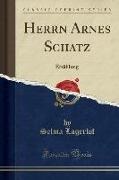Read more
Excerpt from Herrn Arnes Schatz: Erzählung
Qin einem %ebmartage, n[6 hie ®ännnernng bereinbmcb, tum 5zorarin ben 2_beg gefahren, ber non Rnngböll nach Dem Rircbfpiel ©olberga führte mar gang einiam nnb menfcbenleer auf bem 933ege, aber EURzomrin brauchte fid) baum nicht ®cbtneigen anf5nerlegen. Hatte neben {ich auf ber 8'nbre einen berläfilicben $rennb, mit bem er 8mieiprad; p¿egen fonnte. 5306 war ein Heiner ichnmraer @unb mit finicbigem %e¿, ben iomrin ©3333, nannte. [ag meiftenteilß {till ba, ben Qopi giviicben bie 58eine ge¿emmt, unb 6iin5dte nmr 511 allem, muß {ein i>err iagte. 2iber wenn er etnmß 311 Düren betam, maß ihm nicht bebagte, bonn ficüte er {ich auf Der 8nbre anf, ftrecfte hie ®cbnanae in Die S!nft nnb benlte ärger aß ein 918017.
About the Publisher
Forgotten Books publishes hundreds of thousands of rare and classic books. Find more at www.forgottenbooks.com
This book is a reproduction of an important historical work. Forgotten Books uses state-of-the-art technology to digitally reconstruct the work, preserving the original format whilst repairing imperfections present in the aged copy. In rare cases, an imperfection in the original, such as a blemish or missing page, may be replicated in our edition. We do, however, repair the vast majority of imperfections successfully; any imperfections that remain are intentionally left to preserve the state of such historical works.
About the author
Selma Lagerlöf (1858-1940) was born on a farm in Värmland, trained as a teacher and became, in her life-time, Sweden's most widely translated author ever. Novels such as Gösta Berlings saga (1891; Gösta Berling's Saga) and Jerusalem (1901-02) helped regenerate Swedish literature, and the school reader, Nils Holgersson's Wonderful Journey through Sweden (1906-07), has achieved enduring international fame and popularity. Two very different trilogies, the Löwensköld trilogy (1925-28) and the Mårbacka trilogy (1922-32), the latter often taken to be autobiographical, give some idea of the range and power of Lagerlöf's writing. Several of her texts inspired innovative films, among them Herr Arnes pengar (Sir Arne's Treasure), directed by Mauritz Stiller (1919) and based on Herr Arnes penningar (1903; Lord Arne's Silver), and Körkarlen (The Phantom Carriage), directed by Victor Sjöström (1921) and based on Lagerlöf's Körkarlen (1912). She was awarded the Nobel Prize for Literature, as the first woman ever, in 1909, and elected to the Swedish Academy, again as the first woman, in 1914. Having been able to buy back the farm of Mårbacka, which her family had lost as the result of bankruptcy, Lagerlöf spent the last three decades of her life combining her writing with the responsibilities for running a sizeable estate. Her work has been translated into close to 50 languages.

